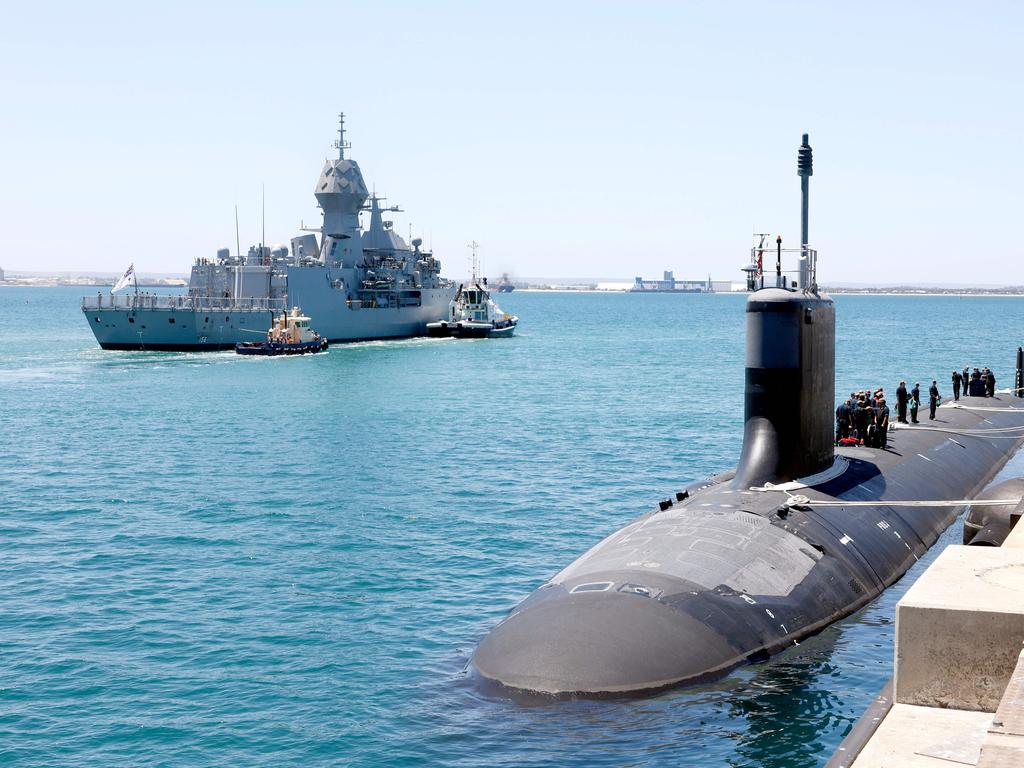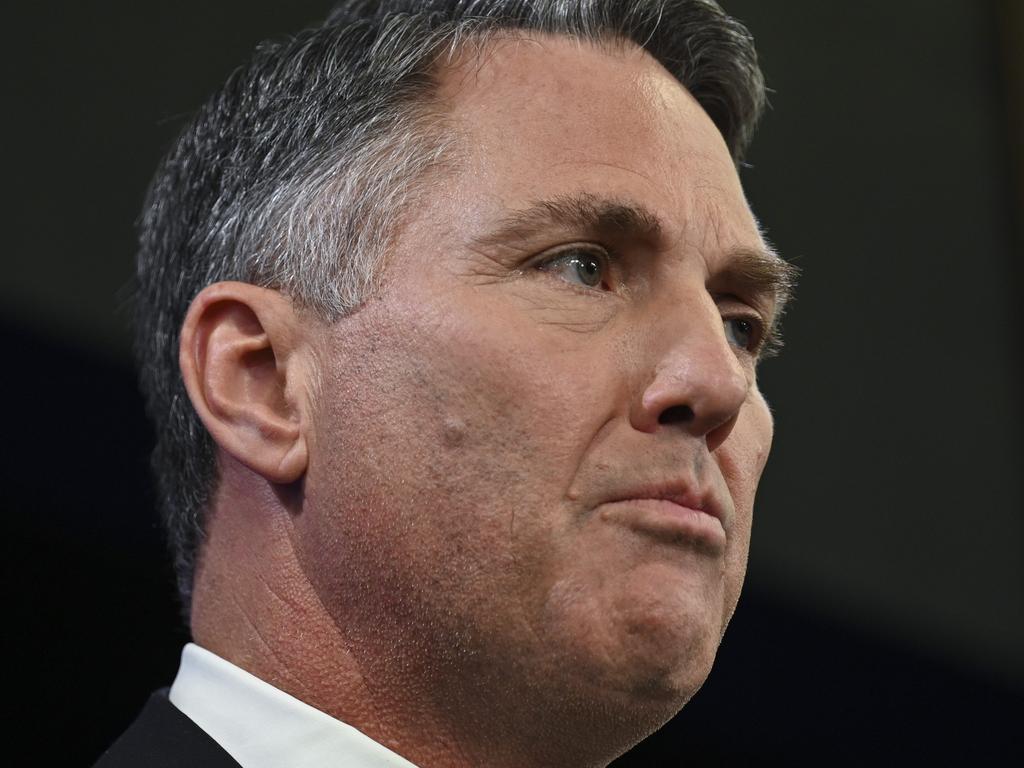Defence strategy: Behind the flash-card puffery, it’s just the same old four-card trick


Marles delivered a sombre speech to the National Press Club, and released a mostly indecipherable version of Defence’s Integrated Investment Plan and the new National Defence Strategy.
Like a bad episode of comedy series Utopia, he “bigs up” a headline figure by going many, many years into a hypothetical future. The headline is a $330bn capital expenditure program for defence over the next decade. It includes $50bn in new money for defence.
Sounds impressive? It’s meant to. But look a little closer at the figures. The increase over the next four years, the budget forward estimates, is just $5.7bn. So 90 per cent of the alleged increase in defence spending occurs after the forward estimates, almost all of it in the latter part of the decade ahead. That means the government will start to increase defence expenditure meaningfully in its third and fourth terms, if by some miracle it gets a third or fourth term.
Marles himself told us that our strategic circumstances, which the government had already declared the worst since World War II, had deteriorated further in the past 12 months. The response to that is to increase defence expenditure in the next four years by about 2.4 per cent a year.
Marles’s defence policy is riddled with contradictions and illogicality. He says we no longer have a 10-year warning period. Our circumstances have become urgently worse. Yet he’s not going to do anything that delivers significant results within 10 years. He even claims, bizarrely, that those arguing for action within the next 10 years are unrealistically pushing for Australia to match China, or more ludicrously, the US, in the range of our military capability.
Talk about creating a rhetorical straw man. I’ve never seen anyone make such a ridiculous argument. Marles claims, in the weirdest logic chopping I’ve ever seen, that he is faced with a choice of trying to become as big in defence as China straight away, or putting everything off so that nothing of consequence is delivered in the next decade, but then we begin to sing.
So having claimed the government is acting with new urgency to pursue profound transformation, Defence is actually planning the same slow, tortuous, 100 years of solitude, decades-plus systems of acquisition that it’s always done.
On the evidence of these statements, Marles has failed to create a culture of speed in defence. Ukraine, Russia, Israel, Iran and the Houthi rebels can acquire lethal capabilities in a few years; for us, it’s decades at best. Ukraine will this year produce 1000 different types of drones. We possess no armed drone of any kind.
A lot of the documents are intentionally difficult to interpret. The government is rightly spending big sums of money on an unmanned aircraft, the Ghost Bat, and a couple of big unmanned underwater vessels. They’re developmental programs but promising and worthy of investment. These are not what is normally meant by drones, but the whole world understands that we live in the age of drones and missiles.
Here’s what Marles had to say about drones: “We have all seen the prevalence of drones in combat, including Ukraine and the Red Sea. So we are increasing funding for drone and counter-drone capabilities. To make this happen, we are providing an additional $300m over the next four years and $1.1bn over the decade”.
A billion dollars over 10 years? That’s our drone effort? By golly, our enemies will tremble at that.
Defence has got this all wrong. We’re meant to produce drones, not become drones. And for all the talk of missiles, most of the missile upgrades in these statements are in tiny numbers and announced many, many times previously. The government talks repeatedly about the program to manufacture missiles in Australia but the only missile we are actually committed to producing here is a relatively short-range army land attack artillery rocket. Of all the missiles in the world, this is the least relevant to our maritime circumstances.
The government has it seems definitively cut the fourth squadron of Joint Strike Fighters we were always going to acquire. These are modern defence platforms that actually exist and work, which can be fitted with long-range missiles. The decision not to acquire them is a decision not to spend money in the only period meaningful for a government, the forward estimates.
This monumental con job is an attempt to construct an excuse for doing nothing now, by promising to do something in 10 years. It’s irresponsible, and it doesn’t remotely meet our strategic needs.







Defence Minister Richard Marles is a like an ageing carnival magician: he keeps performing the same four-card trick, hoping his audience never gets wise to the old-fashioned and obvious trickery.